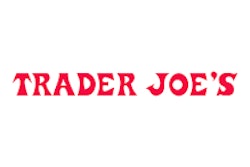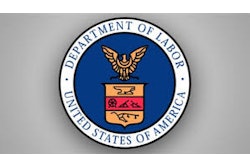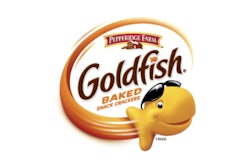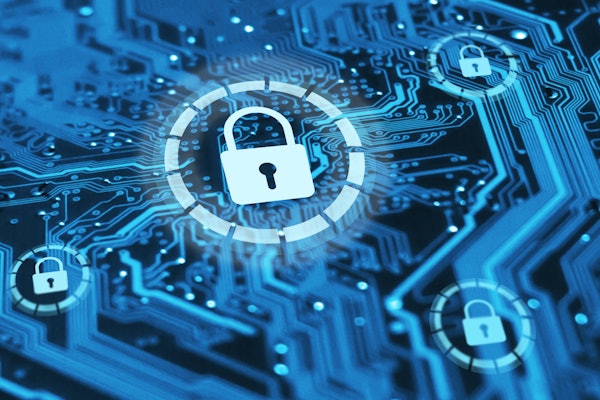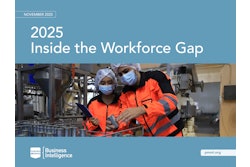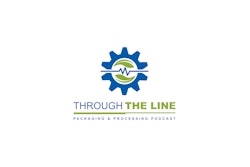In this episode, we discuss the surprising carbon dioxide shortage and its potential ramifications on carbonated beverages, sparkling waters, beers, and hard seltzers. Pro Food World’s Aaron Hand joins unPACKed and unravels the causes behind this increasingly hushed global crisis.
Discover the factors contributing to the CO2 scarcity and its current effects on the food and beverage processing industry. Learn about the implications this shortage may have on your favorite beverages, prompting us to consider the broader impact on the market and what we can do to restore the effervescence to our drinks. Tune in now to stay informed on the unfolding situation and its potential effects on the beverages you love.
To subscribe, rate, review, and find more unPACKed podcast episodes, visit pmmi.org/podcast or find us on Apple Podcasts, Spotify, iHeart Radio, or wherever you listen to your podcasts.
Sean Riley:
So with all the fancy introductions out of the way, welcome back to the podcast, Aaron Hand.
Aaron Hand:
Thank you, Sean. Good to be back.
Sean Riley:
As I like to say to all of our guests, the pleasure is all ours. So I've been reading Pro Food World as everyone listening to this particular podcast and all of our podcasts should be doing, and I keep coming across CO2. I see it in the headlines. I've seen it in your stories. I've seen it in your stories from your colleague Michael Costa, and I know that's what we're going to be talking about today, but just from my own personal, basically that's ... we're talking about the bubbles and soda, right?
Aaron Hand:
Well, basically, but I think when people think about carbon dioxide, they don't necessarily think about the bubbles in your soda so much. You think about carbon dioxide, you think about greenhouse gases and what they're doing to our climate. And so people don't realize how useful that CO2 byproduct is in a lot of food and beverage manufacturing. So not just the bubbles in our drinks, but it's used for example, to purge vessels or cans or bottles before the liquid is put in. It's used as a cryogenic agent for freezing foods quickly.
Sean Riley:
Okay.
Aaron Hand:
It has a lot of other uses for cleaning within the food and beverage industry. My understanding is a lot of uses within the medical industry as well and other sectors.
Sean Riley:
So yeah, I was going to say, from what I thought, it usually gets painted sort of negatively, like you said, for greenhouse gases and things like that, but for food processing and things of that nature, I didn't realize it from a freezing standpoint that that's interesting. So that's obviously something that would be necessary to use that wouldn't involve having to have more wastewater and things like that.
So I guess the reason we're talking is from what I understand from talking to you and from reading your stories, is somehow despite there being what it seems to be an abundance of it in the atmosphere, there's a CO2 shortage, so why, what exactly is going on?
Aaron Hand:
This has been a really hot topic lately. I mean, certainly on my spring travel circuit where I was at BevTech and at Craft Brewers Conference, people are pretty up in arms. All of those folks are needing to put the bubbles in their drinks.
Sean Riley:
Oh, I didn't even think it. It's beer and seltzers and stuff as well.
Aaron Hand:
Anything that you've got carbonation in, that all comes from the-
Sean Riley:
Now I'm locked in. Now you got me. Okay.
Aaron Hand:
Great. So you've got the big names like Pepsi and Cola or bigger prominently at BevTech, and you've got the big beer manufacturers there too. They might not necessarily have such a problem getting their hands on the CO2, but the little guys, I was actually talking to somebody at BevTech who's just a small soda manufacturer and they've had to shut down production, and it just seems so odd for something just like bubbles in your drink. And at Craft Brewers Conference, they're very much in up arms because they're all little guys.
So how this came about, I think we look a lot to COVID for a lot of our problems, and we might think they're temporary, but so many things that we saw really exacerbated with COVID, they were problems that existed before, and they will continue for quite a while. So you can look at COVID in terms of, we all stopped driving less when we all had the lockdown. So CO2 comes primarily from the burning of fossil fuels. So when we're using less gas, there's less byproduct from that, and commercial CO2 production actually fell by more than 30% during that time.
Sean Riley:
Wow.
Aaron Hand:
But there's so many
Sean Riley:
Yeah, I guess COVID, everything else was, there was a fracture already there, and then COVID just kind of busted it wide open with ... I wouldn't even have thought of the driving or the burning of fossil fuels to create it. And that's the way that, I guess for the most part is how we're getting our CO2 for use in food processing.
Aaron Hand:
Yeah, I think it's in the 90-plus percent range. That's where we're getting our CO2.
Sean Riley:
Then go back to what you were saying, and I apologize for the interruption.
Aaron Hand:
Oh, no problem. Just pointing to, yes, COVID created this issue and yes, now we're driving more, but there are so many other things going on in terms of energy pricing, aging infrastructure. Those are old CO2 plans that might be having reliability issues, investor uncertainties. They look at something like CO2. Again, it has that, what do you call it, perception problem, where it might sound risky to invest in something that's related to climate change.
Also, the government is looking at this issue the same way the consumers are. They're looking at it from a climate change perspective and not thinking about the need for CO2 as much as they are thinking the need to get it out of our atmosphere. And again, we can go back to supply chain, which is used as an excuse for everything and we can put it the little air quotes around supply chain, but you've got young drivers who have no interest in trucking these hazardous materials around either. So there's just so many things that add up to create this shortage.
Sean Riley:
Interesting. So is that more from a perception thing as well where it's a younger ... what's the word I want to use ... environmentally-conscious driver, for lack of a better word, or is it in general they don't want to because of the potential danger of it?
Aaron Hand:
I think it has more to do with the danger of it. This isn't like trucking Amazon boxes around. There is a real hazard with driving these kinds of materials.
Sean Riley:
So we've established why it's missing and where it's gone and all of that makes sense to me. But what I don't understand or how we're going to solve in the next couple of minutes is exactly what can we do, people need their sodas, people want their beer, they're white claws, their, they're things with seltzer. Not to mention that, like we mentioned earlier, the flash freezing and things like that. So I guess what is there to do about it?
Aaron Hand:
And we're not going to solve it within the next couple minutes, and I'm not going to get deep-
Sean Riley:
Darn it.
Aaron Hand:
... down into the technology to, so you can start building your little device at home, but there are several directions to come at this from. So I'll kind of go down my list.
So first of all, nitrogen can be used instead of CO2 in a lot of cases, not all cases, but I mentioned that I had first heard about this early last year at IPPE show, affectionately referred to as the Chicken Show. So their Messer was showing their new tunnel freezer, and they put in the capability to switch from CO2 to nitrogen if people are having supply issues. So at that show, you're talking about little bits of chicken or other kinds of meats that are being processed, but these freezers are used for anything that might clump together in a bag. So say strawberries or tortellini, whatever, that you need to freeze quickly so that they can be put into a bag.
So nitrogen is a good solution for that. Atlas Copco was at Craft Brewers Conference last year, and again, talking a bit about this at Pack Expo this past year too, about their onsite nitrogen generator, which has been pretty popular with the craft brew industry because they can use nitrogen ... They're not necessarily going to put it in their beer instead of CO2, but they can use the nitrogen for purging. They're big vessels that they're brewing the beer in or for purging the bottles or cans before.
Sean Riley:
I feel like I've seen that from a dosing standpoint of individual bottles and stuff like that with nitrogen, correct?
Aaron Hand:
Right.
Sean Riley:
Okay.
Aaron Hand:
So CO2 is commonly used in that, but I believe it's pretty easy to be using nitrogen instead.
Sean Riley:
Interesting. Now, how about in the drinks themselves?
Aaron Hand:
Right. So actually I find this so interesting because it changes the whole dynamic. I mean, you do have. You've probably heard of Nitro Pepsi, they've come out with nitro beers and nitro coffee too. But what I find interesting there is the whole ... You think about pouring a beer and you've got to tilt your glass and pour your beer into there so that you're not getting too much foam at once. Completely different story with nitrogen. You've got to tip your bottle hard and pour it straight down in there to get the right effect. And that's with the beer in with the Pepsi.
Sean Riley:
So would that be like with a Guinness, I feel like they may use nitrogen because I know it has to be ...
Aaron Hand:
Now see, you're just going to make me look completely.
Sean Riley:
No. Why would you know that? I'm just think ... as a connoisseur, I'm simply speaking, that I'm pretty sure-
Aaron Hand:
[inaudible 00:10:04].
Sean Riley:
Yeah, I'm pretty sure that that's one of the reasons why it's poured so slowly and tilted so much is because it's nitrogen. So that's interesting that it can be used across other beverages.
Aaron Hand:
Oh, I'm going to say it's the opposite. You got to not pour slowly, you got to pour fast and hard.
Sean Riley:
Okay. Pour fast and hard. So maybe it's not that. Okay, completely. I just took a shot. I took a swing, if you will.
Aaron Hand:
So yeah, it is a possibility. But I think that is going to be more of a, just a fun little change in a drink. Not something we're going to see on a regular basis, but there are other aspects getting away from nitrogen. The government, for example, or various governments are starting to look more toward how the CO2 could be reused.
So right now there are tax breaks in place for sequestering CO2. So the energy companies, rather than selling it commercially are burying it so they can put it in the ground. They're going to get more money back from the government than if they sell it to the commercial market. And so that is starting to change. I think we're seeing some movement toward offering similar tax credits for commercial reuse, but at this point, you get more back for sequestering.
And beer makers can actually generate CO2 during their fermentation process. So that's another route they can capture their own CO2 and reuse it in their beers, and even to the point where they could recapture enough that they could start selling that as a new revenue stream.
Sean Riley:
Really, that's interesting because I was actually ... that was one of my questions as I was thinking of this and we're trying to find solutions, I was going to say, is there ways to reuse, or is there renewable CO2 if that exists, is there things out there that this is something that exists, can it be reused for multiple uses?
Aaron Hand:
Yes. So CO2 does, as it comes off, other processes besides those fossil fuels, it can be reused. And actually, there are companies that are looking at renewable energies, renewable sources for CO2 like biomass conversion, biogas upgrading. Michael Thomas from Archaea Energy was talking about that at BevTech that Arcadia was actually acquired late last year by BP. So this is something that the fossil fuel companies are very interested in. They're looking at biogas made through anaerobic digestion of organic waste. So when they upgrade that, they're able to separate out the CO2, which then is a renewable CO2 for commercial use. And then the remaining bio methane gets used as a renewable energy source.
So there are lots of efforts going on there. Bob Yeoman, who was the one ... I can't remember if I credited him. He was speaking at BevTech, but he was the one really talking about that long list of things that has caused the CO2 shortage. His company is Spectrum Carbonics, and they're also providing renewable CO2. So there are several companies out there trying to figure out how to not only solve the climate issue, but thereby also solve the CO2 issue.
Sean Riley:
So there's people coming at it from all angles to make sure, again, the environmental aspect of it, as well as we need our drinks and our flash freezing and things like that.
Aaron Hand:
Right.
Sean Riley:
Very interesting.
Aaron Hand:
I don't think this is going away anytime soon. So these are our long-term solutions.
Sean Riley:
Okay. This is something that I never would've thought of, Aaron, and I've really appreciate you coming on and explaining this to us because clearly this is something that we can't run out of. So I just want to take the time to thank you for taking the time out of your day to come on here with us today.
Aaron Hand:
Sure. I enjoyed it



